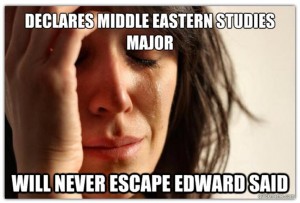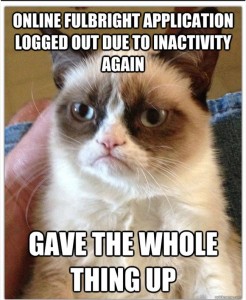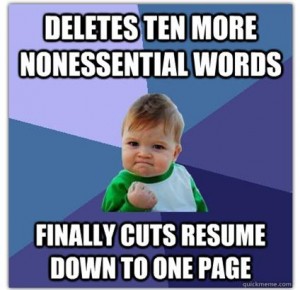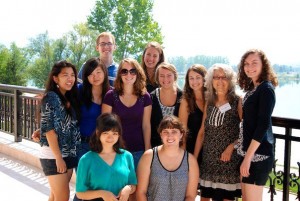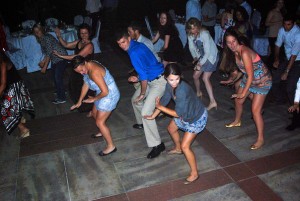You might have noticed that it’s getting a little tense around campus right now. Midterms have descended upon us and finals don’t seem far off either. On top of all that, it’s almost summer meaning it’s time for everyone to solidify internships, volunteer work, and summer jobs and seniors have to come to terms with the G word (Content warning: DETAILS YOU DON’T WANT TO KNOW. SENIORS DO NOT CLICK THE LINK). While I know everyone is stressed, I’m going to be selfish and focus on the seniors, but hopefully everyone can learn a little something about what seniors are dealing with right now. It’s hard to understand until you’re in it, but I’ll do my best…
Countdowns and Lasts I took what is probably going to be my last exam in college last week. We’ve completed our last spring break. We’re working on our last research papers. We’ve attended our last Wedding Party. We’re counting down until thesis is due (and hoping time will slow down), until we get a job (and hoping time will speed up and bring that offer sooner), until Senior Week (and hoping thesis will be done and jobs will be acquired by that point), and finally until Commencement. Even though we try not to think about these things, we still do. About 20 times a day, at least. So if your senior friend is staring off into space with a terrified look on her face, don’t ask what they’re thinking, it’s so hard to say out loud.
I took what is probably going to be my last exam in college last week. We’ve completed our last spring break. We’re working on our last research papers. We’ve attended our last Wedding Party. We’re counting down until thesis is due (and hoping time will slow down), until we get a job (and hoping time will speed up and bring that offer sooner), until Senior Week (and hoping thesis will be done and jobs will be acquired by that point), and finally until Commencement. Even though we try not to think about these things, we still do. About 20 times a day, at least. So if your senior friend is staring off into space with a terrified look on her face, don’t ask what they’re thinking, it’s so hard to say out loud.
Plans (ahem… Plans to have plans… or Plans to make plans to have plans…)
Don’t ask what our plan is for after graduation. Yes, it is a better question than, “Do you have a job?” “Have you heard back from *Grad School Name Here*?” “So, you should hear back from Fulbright soon, right?” But asking about our “plans” is not much better, because our plans never really feel like enough. We plan to get jobs, go to grad school, or get a fellowship, but until we hear back, this plan feels really flimsy. We plan to live in the city of our choice, BUT THAT DEPENDS ON THE PREVIOUS PLAN DOESN’T IT?! We plan to stay in touch with all of our current friends, but when they aren’t 30 seconds away… what do we do then? Seriously. Someone tell me what to do about that.
Classes
Somehow, despite daily existential crises, we’re supposed to write papers, finish problem sets, do readings thoroughly, attend labs, and uphold our GPA while simultaneously dealing with everything you’ve read above. But if seniors are asking for extensions, they’re probably just being lazy… Let me tell you, senioritis is much more than not wanting to do work, it’s not having time to do work because of everything else we are expected to accomplish.
Life

Seniors have all of the above on their to do lists, but there’s one thing we desperately want to make a priority: our lives, not the future grown-up lives, not the past student lives, our current lives. We want to make the most of the time we have left with our friends, because after May 16th, we might not be in the same country, let alone the same state or city. We want to get two-hour dinners reminiscing about the fools we were first year. We want to sit out on Jaqua and admire that we might never live somewhere this beautiful again. We want to talk to our professors about more than the subjects they teach because this could be the last time we’re surrounded by so many intelligent people in all disciplines. We want to run to our mentors and ask, “WHAT HAVE YOU FORGOTTEN TO TEACH ME?! TEACH ME NOW BECAUSE YOU ONLY HAVE 6 WEEKS LEFT.” 6 weeks is nothing.
So go hug the seniors in your life, because they don’t know if you’ll be close enough to hug them after May 16th, take advantage of it now.


